Grain-free options are all the rage at natural pet food stores. Is a grain-free diet for dogs healthier than something with rice, corn, oats, or wheat? Should you feed your dog grain-free? Does grain-free food resolve allergy symptoms such as itching, ear infections, and hot spots?
Feeding grain-free foods to dogs has gained significant popularity in recent years, driven by human diet trends of eliminating grains from the diet. Many pet owners are drawn to this trend, thinking it aligns with a more natural and ancestral canine diet. However, the decision to go grain-free should be made with careful consideration and an understanding of the potential implications.
DCM (a form of deadly heart disease) is one such problem associated with feeding grain free kibble to dogs.
In this article, we will dig into the concept of grain-free diets for dogs, exploring the reasons behind this dietary choice (including going grain-free for allergies), the pros and cons, and the essential factors to keep in mind when deciding if it’s the right choice for your pet.
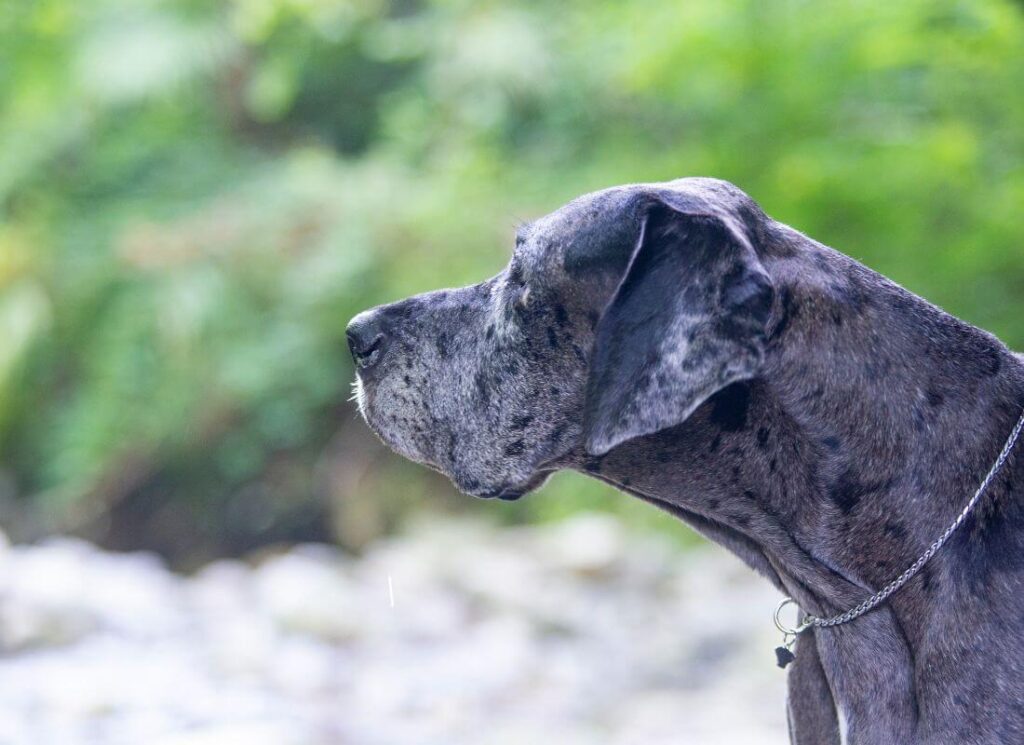
Is Grain Free Dog Food Lower Carb?
Contrary to common belief, grain-free dog food is not necessarily low in carbohydrates.
While the term “grain-free” suggests the absence of grains like wheat, corn, or rice, it doesn’t guarantee a reduction in carbohydrate content. In many cases, grain-free dry dog foods replace grains (and often some of the meat, too) with alternative carbohydrate sources such as peas, lentils, or potatoes. These ingredients can be just as, if not more so, carbohydrate-rich.
What’s more, the carbohydrate replacements seen in grain free dry foods (including lentils, peas, and potatoes) continue to be associated with an alarming trend of nutritional DCM. In other words, grain free diets may be contributing to deadly heart disease!
(Authors note: we realize the DCM “debate” is a controversial one. We are a science-backed blog and cite resources, not propaganda on this topic).
This means that a grain-free diet might not be the solution for pet owners seeking to provide a low-carb or “keto” option for their dogs.
Not only that, but there is this misguided belief out there that grain free dog foods, in removing the grains, have more meat. This is a myth that could not be farther from the truth! Grain free dog foods have the same, or less meat content than kibbles that contain grains.
Understanding the ingredients and nutritional content of grain-free dog food, as well as how pet food formulation works, is essential to make informed choices that align with science, research, and your dog’s dietary needs.
Grain-Free Diet for Dogs 101
Grain-free dog food can come in many forms, and won’t contain common grains such as corn, oats, wheat, or rice:
- Grain-free kibble
- Freeze-dried raw
- Grain-free canned food
- Raw-coated grain-free kibble
- Air-dried dog food
- “Fresh” dog food
- Home-cooked pet recipes
- Prey-model raw
Grain-free kibble dog food diets became popular in the early 2000s. At that time, there was a lot of debate surrounding the benefits and drawbacks of grains for both animals and for people.
Canine health and dog food trends tend to closely follow human diet trends! For example, in 2022 we are seeing a huge rise in the popularity of “fresh”, “keto”, “paleo”, “vegan”, “cricket-based”, and “whole foods” dog food diets.
Oftentimes, our scientific understanding of these trends is way behind our actual use of them; which can be dangerous and devastating for a dog’s diet.
Remember when eggs and avocados were considered ‘unhealthy foods’? That’s a trend we now know was wildly incorrect and damaging. Just take a look at human diet trends and toxic diet culture in general!
Tread cautiously with trends.
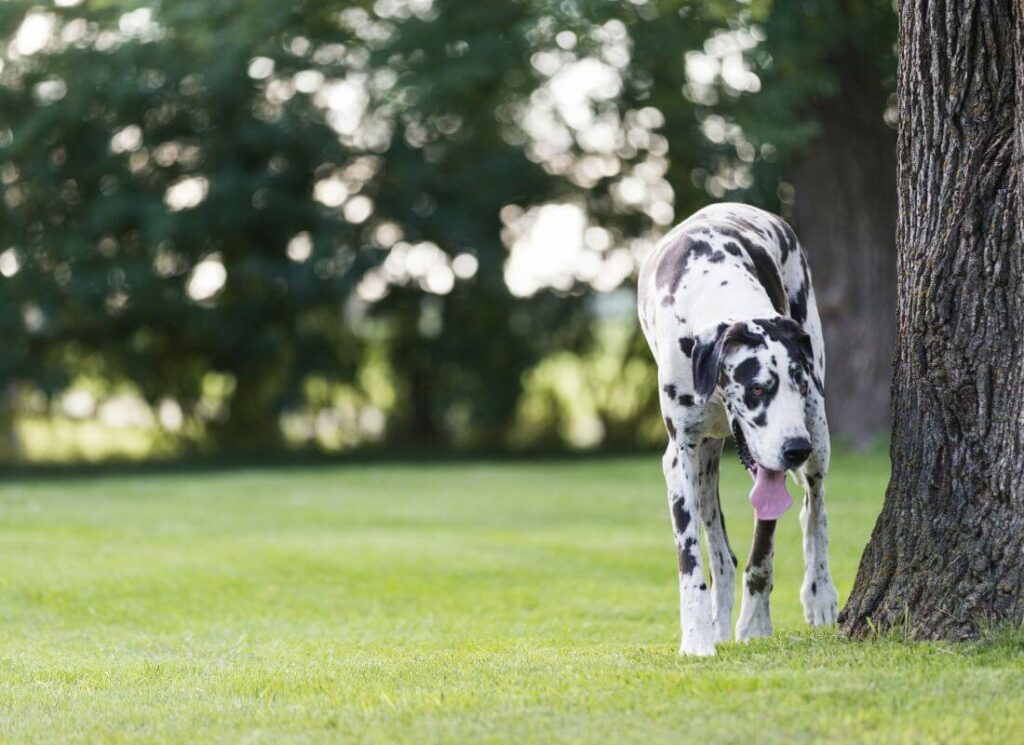
What are common grains in dog food?
Common grains in dog food include:
- Rice, brewers rice, brown rice
- Corn
- Wheat
- Oats
- Barley
- Sorghum
- Quinoa
- Other “ancient grains” such as amaranth, millet, and rye
Grain-free foods will not contain those items. All kibbles require a starch of some kind to bind the ingredients together, whether the starch is grain-based (rice), or not (lentils). All dry kibbles contain carbohydrates, in other words.
It is a myth that ingredients such as corn or rice are “fillers”. This unfortunately misunderstanding is driven by profit driven social influencers, pet stores, and small food brands that make their money by generating fear and anxiety about pet food through misinformation.
Corn, often a subject of debate in pet food ingredients, is actually be a quality component in many pet food formulations. First and foremost, it is a highly digestible source of carbohydrates, which can provide a steady supply of energy for dogs and cats. It is more digestible than beef (truth!) and is a good source of essential nutrients such as protein, fiber, vitamins, and minerals.
To respond to the “grain-free” trend, pet food manufacturers figured out how to replace common grains with grain-free carbohydrates such as lentils, garbanzo beans, peas, and potatoes. Many grain-free kibbles are literally loaded with these ingredients.
Unfortunately, the carbs included in grain free kibbles have much less data, research, and studies associated with them. On paper they seem to work from a ‘nutritional’ standpoint, but in practice there seems to be problems.
Biovailability and the complex interplay of nutrients in dog food make a big difference on whether or not a food is truly healthy for your pet.
Do dogs need grain in their diet?
There is a lot of conflicting information about whether or not dogs need grains in their diet at all.
If a dog is offered a whole prey animal to eat, it will rip into the meat, bone, cartilage, and organs (yes, the by-products!) and consume everything, including the contents of the stomach.
Dogs by nature are scavengers and opportunists: they can and will eat just about anything offered to them. Modern pets are FAR removed from their wild ancestors; their digestive system has actually evolved and changed to process foods more commonly seen in the human diet (grains, for example).
Grains provide energy in the form of carbohydrates, not to mention they fulfill important dietary needs such as omegas, fiber, vitamins, minerals, and amino acids.
Because kibble MUST contain some kind of starch or carbohydrate for binding, grains are a solid and nutritious choice.
https://vetnutrition.tufts.edu/2021/07/the-role-of-carbohydrate-in-pet-foods/
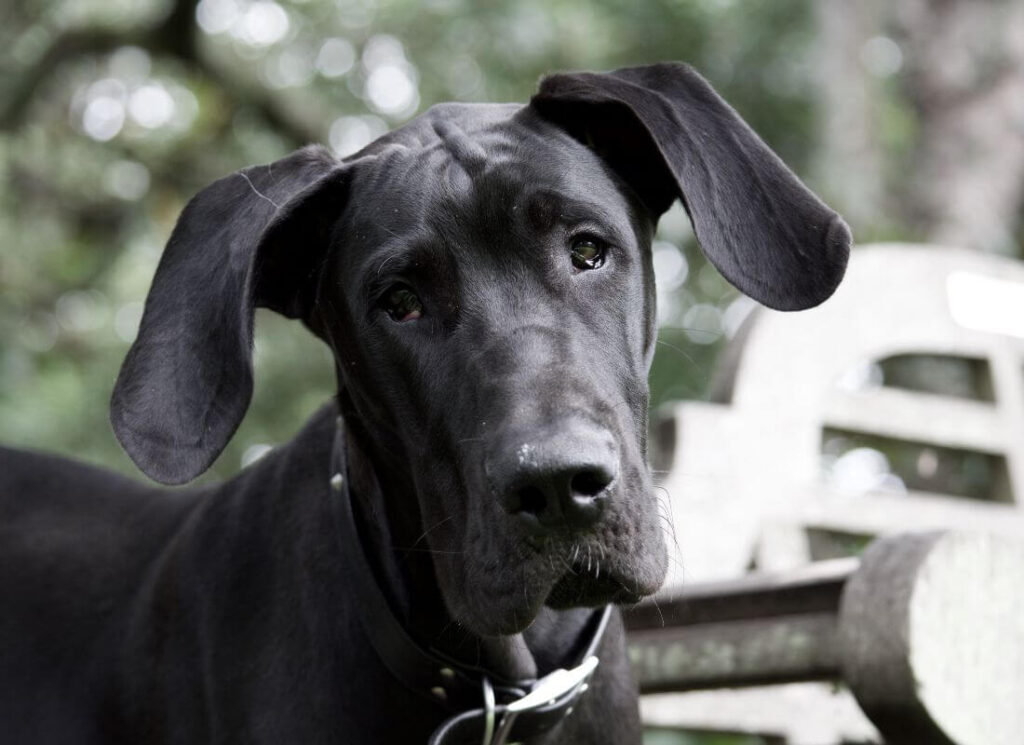
Grains and dog food allergies
Some people believe that their dog has grain or chicken allergies, however, this is rarely true.
Most of the time there are other factors at play and veterinary advice is recommend. In reality, true grain allergies in dogs are quite rare. Allergies in dogs are more commonly associated with proteins, such as those found in meat or poultry (though, chicken allergies are also a bit of a wild social media driven myth).
It’s essential to differentiate between true allergies and food sensitivities, where certain ingredients may cause gastrointestinal discomfort but are not true allergies involving the immune system. If you suspect your dog has a food allergy, it’s crucial to consult with a veterinarian to accurately diagnose the issue. While some grain-free diets may have their place for specific dogs with dietary sensitivities, it’s important to base feeding choices on individual dietary needs rather than assuming that grains are the primary culprit behind canine allergies.
It’s important to note that only a veterinarian-monitored food elimination diet can definitively diagnose food allergies in dogs. Scientific study shows that blood and saliva allergy tests are wildly inconsistent and inaccurate. Save your money.
For pets that have been scientifically diagnosed with a legitimate grain allergy, choosing a well-researched food or working with a board-certified veterinary nutritionist will be key.
FACT: Less than 1% of dogs have a true sensitivity to grains, according to scientists.
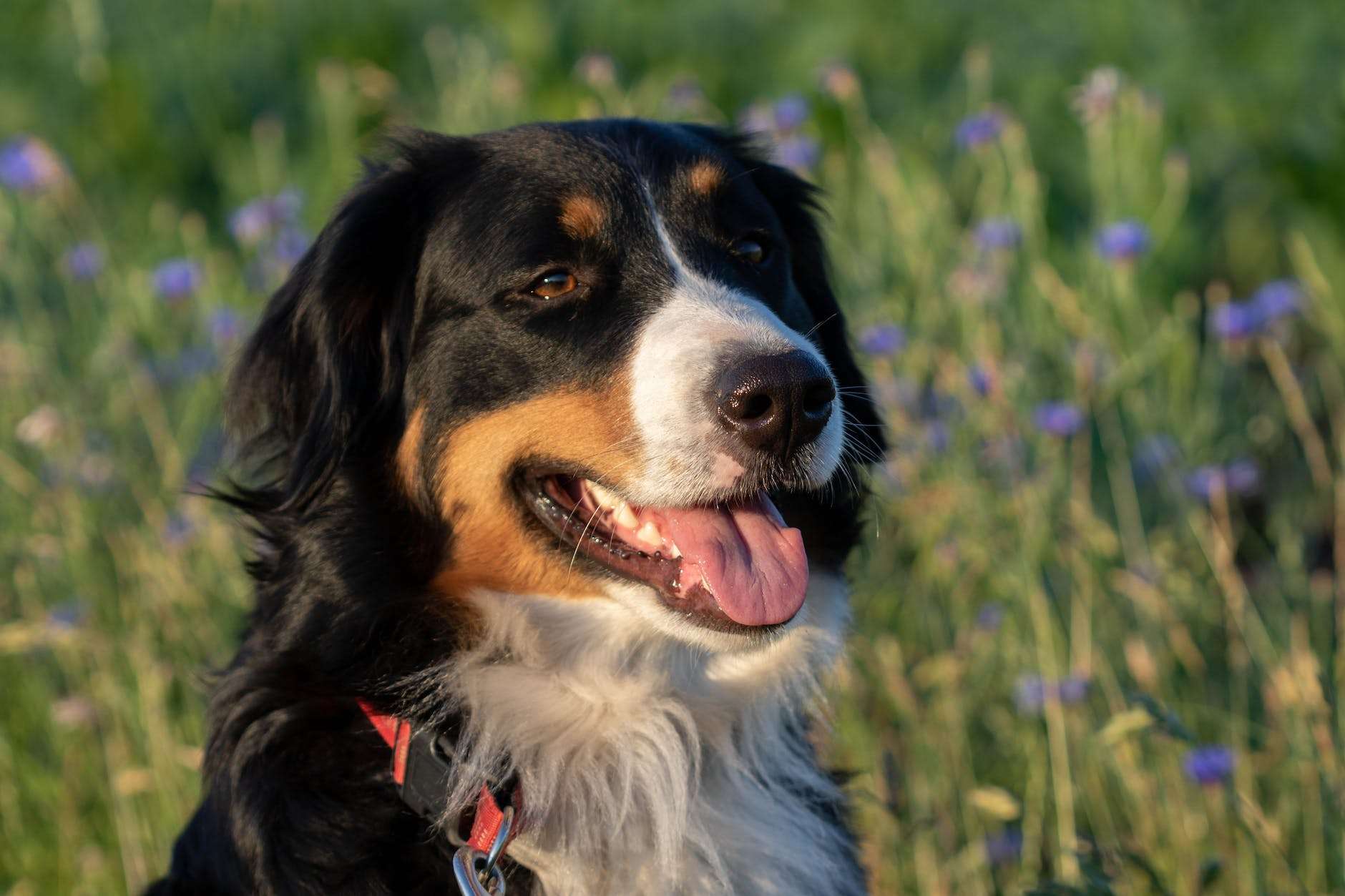
Is grain an inflammatory ingredient in pet food?
I did a google search with two different search terms. Each one gave me WILDLY different results.
The first one was “Is grain-free dog food bad for dogs”. This phrase produced a slew of scientific articles and information from reliable sources, including articles and studies written by highly educated people in veterinary medicine.
Every single one stated that “grain-free kibbles can be dangerous for dogs to eat” and that dogs can digest grains without any problems at all.
Read THIS excellent article from TUFTS University
So, because I like to look at science and evaluate both sides of the coin, I searched again.
The second term I tried was “Is grain an inflammatory ingredient in dog food”. This produced a bunch of inflammatory (catch my drift here?) and alarmist blog posts written by bloggers with no credentials, including ‘nutritionists’ who obtained their “certification” from online correspondence courses.
They all said grains are bad, of course. But does their unscientific opinion have merit?
I think not.
As above, grain allergies are exceptionally rare. It’s been scientifically proven that dogs are easily able to digest and obtain nutrients from grains.
The idea that “grains are inflammatory” comes largely from toxic diet culture in humans. Toxic diet culture is elitist, classist, and often racist too! Read here for more history about this problematic trend.
My Great Dane is not eating, now what?
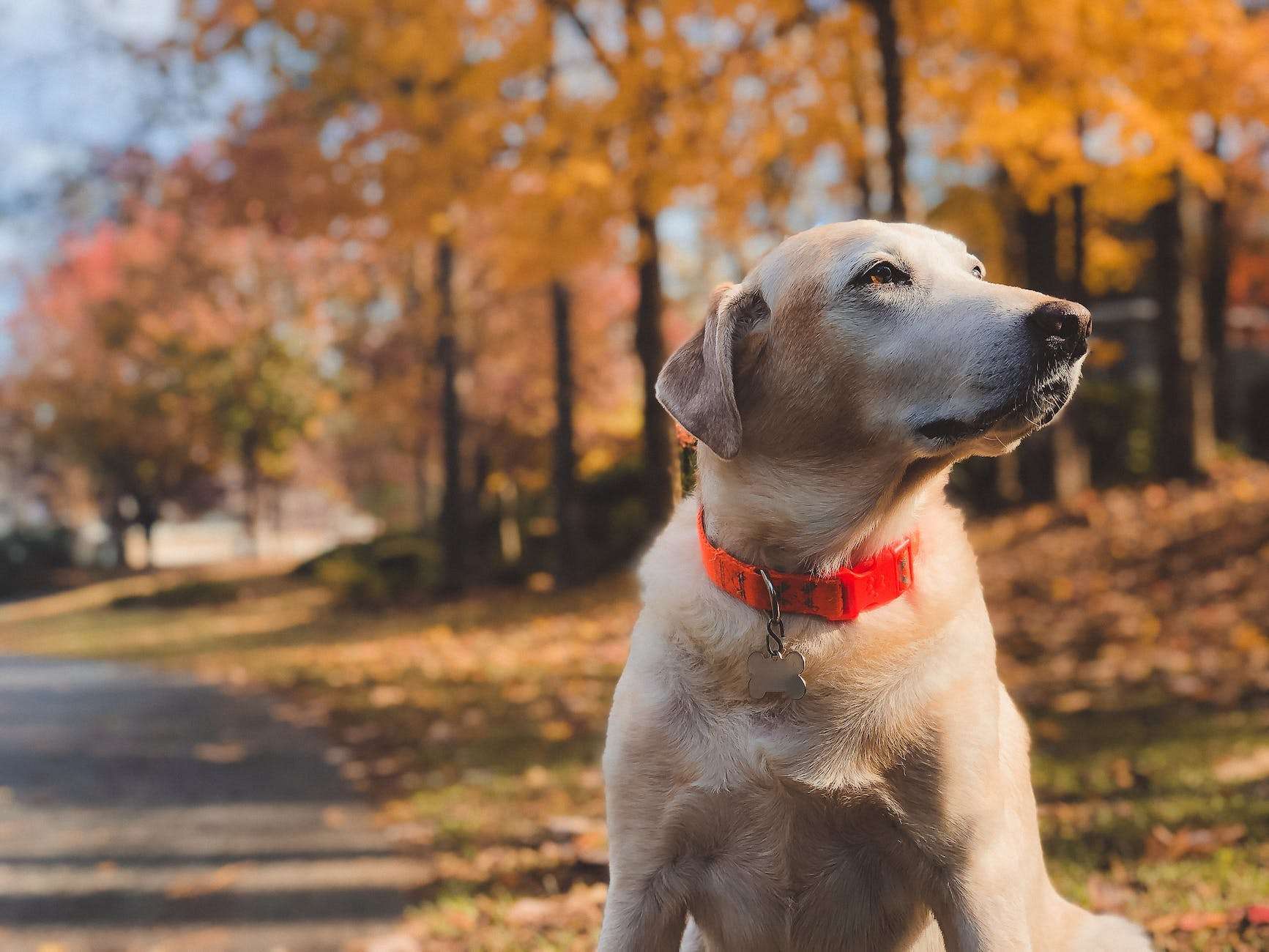
Is grain-free food carb free?
This is one that confuses a LOT of dog owners! I’ve even seen self-proclaimed nutrition experts have absolutely no understanding regarding this topic.
So here it is: just because a food is labeled as ‘grain-free’ does NOT mean that it is low in carbohydrates.
Grain-free dog foods are, in theory gluten free, but they are not carb free! Gluten contamination is possible unless you choose a veterinary prescription diet.
Fact: many dog foods manufactured without grains are high in legumes, peas, beans, and potatoes; all of these things are high in carbs!
Dog food manufacturers want you to believe that grains are bad, because it allows them to produce cheap, pea-filled food and sell it at a premium ‘health food nut’ price.
If a “nutritionist” or other “expert” is telling you that “dogs don’t need carbs, choose a holistic grain-free dog food”, RUN far away.
I said what I said.
How Grain-Free Dog Food is Made
As you may have noticed above, I mentioned how kibbles must be manufactured with some kind of carbohydrate. This is how the the final kibbles are held together. Without it, the food would just turn to dust.
Certain diets such as air-dried and ‘fresh’ foods can be made without grain or carbohydrate sources, but these diets aren’t well-researched and may lack the full spectrum of nutrients and amino acids that pets need.
Ingredients in grain-free dog food
In grain-free kibble foods, rice, oats, wheat, or corn is replaced by peas, potatoes, garbanzo beans, lentils, and other similar plant-based proteins and carbohydrates.
Legumes, peas, and potatoes have very different amino acid and digestibility profiles than other more researched carbohydrates such as rice, corn, and oats. It’s not a cup-for-cup replacement.
Here are some examples of common inclusions in ‘fancy’, ’boutique’, grain-free or grain-inclusive dog foods:
Deboned meat. This can include things such as ‘fresh deboned chicken’, ‘roasted deboned lamb’, or ‘deboned fish’, which appeal to American dietary tastes. While these ingredients are not harmful and sound healthy, it’s important to keep in mind that dogs need bone, organ and cartilage in their diet.
Not just muscle meat, which contains only a small percentage of the actual nutrition dogs get from other parts of the animal (the ‘by-products’).
But wait, there is more!
Deboned fresh meats are 70% water. By law, companies must list ingredients by weight before extrusion.
So if you see that “fresh chicken is the first ingredient” on the label, you are likely being fooled. Especially when it comes to grain-free diets that use a lot of starchy carbs!
After extrusion, how much fresh deboned meat is really there? Around 70% less than you think.
PRO TIP: You want to see meat meals and meat by-product meals in the first ingredients. This dry, rendered product is heavy before and after extrusion, not to mention chock full of protein, vitamins, minerals, and amino acids.
What about veggies?
Pumpkin, Squash, Blueberries, etc. Ingredients like this are often considered to be nothing more than ‘fairy dust’ by board-certified veterinary nutritionists.
Like fresh meat, these ingredients are mostly water. By the time they are extruded there isn’t much left. Plus, they may displace room in the composition of the kibble for vitamins, minerals, and amino acids from better sources.
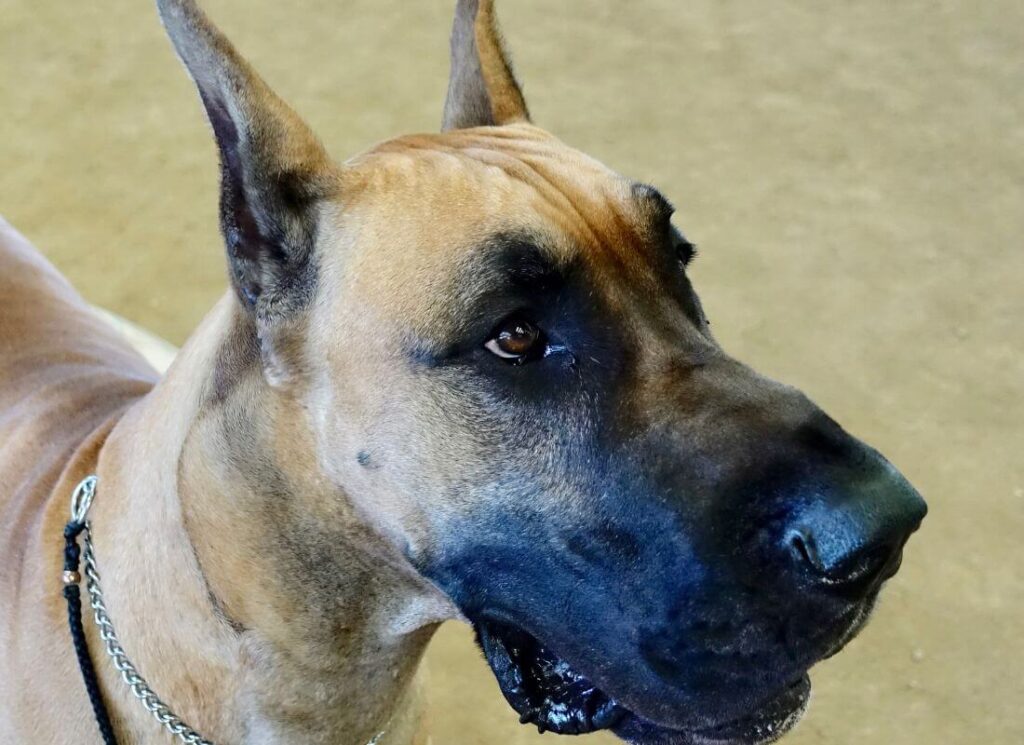
Why grain-free dog foods are not healthy
Because so many grain-free dog diets have replaced a significant amount of meat with peas, potatoes, lentils, and other pulses, the diet may be lacking in the correct balance of trace nutrients and amino acids.
These starchy ingredients contain protein and as a result can, in some ways, replace meat. The final kibble will still meet AAFCO nutrient profile minimums on paper.
Unfortunately, the pet food industry is a sketchy place, and not for the reasons that you think.
What is ingredient splitting?
Ingredient splitting is a common practice, for example!
This is when companies will take an ingredient such as peas and split it up on the ingredients list.
Peas, pea protein, pea fiber, pea flour, and pea starch are things you may notice. Or green lentils, red lentils, yellow peas, green peas.
This splitting allows manufacturers to trick you into believing the food has more meat in it than it actually does, and is a COMMON practice of boutique and grain-free dog food brands.
Read more about ingredient splitting HERE.
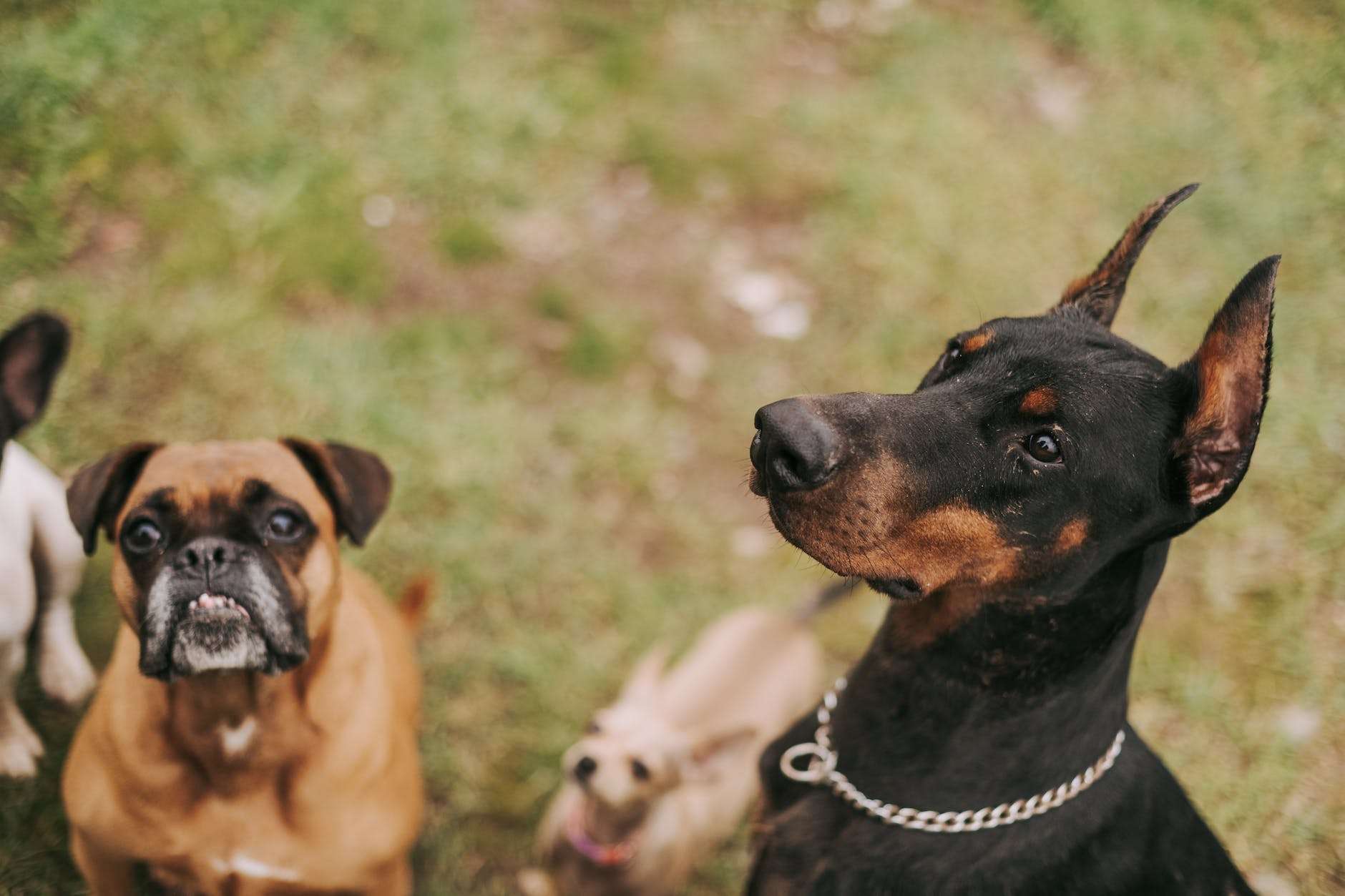
The dirty truth about grain-free dog food
Some people believe that grain-free dog diets contain more meat than what is seen in grain-inclusive diets.
They believe this because of marketing, and because of the assumption that the grains taken out of the food are replaced with meat.
Oops! Grain free diets are actually quite often loaded with pulses and legumes to replace the grains, not meat.
Dogs need meat, bone, organ, tissue, fat, skin, and cartilage in their diet. Many of these things are considered ‘by-products’. By-products are great in a dog’s diet, but marketing has made them into a dirty word.
Grain-free dog foods are not, in fact, higher in meat nor are they necessarily healthier for your dog.
We believe that correctly balanced kibbles will have meat meal and meat by-product meal as a primary protein source, paired with well-researched healthy grains such as rice, corn, and oats for energy and nutrients.
Here is our list of grain-inclusive foods for large breed dogs:
- Purina Pro Plan Sensitive Skin and Stomach Large Breed (Salmon based, chicken free)
- Purina Pro Plan Large Breed Shredded Chicken & Rice (Large Pieces & Chicken Shreds!)
- Purina Pro Plan Large Breed Weight Management (Get the weight off)
- Purina Pro Plan Large Breed Bright Mind Age 7+ (for Senior Great Danes)
- Purina Pro Plan Giant Breed (Hard to find, might be discontinued)
- Royal Canin Giant Breed (Amazing for dogs with chronic loose stools, TOP TIER)
- Eukanuba Large Breed (Great for active and sport dogs)
- Purina One Smart Blend Large Breed (Fantastic budget-friendly option)
- Hill’s Science Diet Large Breed Beef & Rice
- Purina Pro Plan 30/20 Sport Beef & Bison
Is it good for dogs to have grain-free dog food?
We believe that many grain-free dry dog foods and marketing-based food brands are harming pets.
This belief is backed by science coming from board-certified veterinary nutritionists and the top veterinary institutes and organizations in the Country.
Heart disease is just one proven complication of feeding a poorly formulated diet. You may have heard this from people and veterinarians who tell you to stay away from grain-free foods because of the risk of DCM!
DCM (or dilated cardiomyopathy DCM in dogs) has a genetic component, but also a nutritional one. The two are unrelated.
The nutritional relationship to DCM is well documented. Many pet food manufacturers have had to adjust their formulas in the past.
For example, once veterinary nutritionists learned that cats couldn’t reliably synthesize their own taurine, an essential amino acid, it was added to food and the problem was solved.
Taurine deficiency causes heart disease in dogs and cats. However, the veterinary community does not currently see taurine deficiency as the primary cause of the current nutrition-DCM speculations.
Read on!
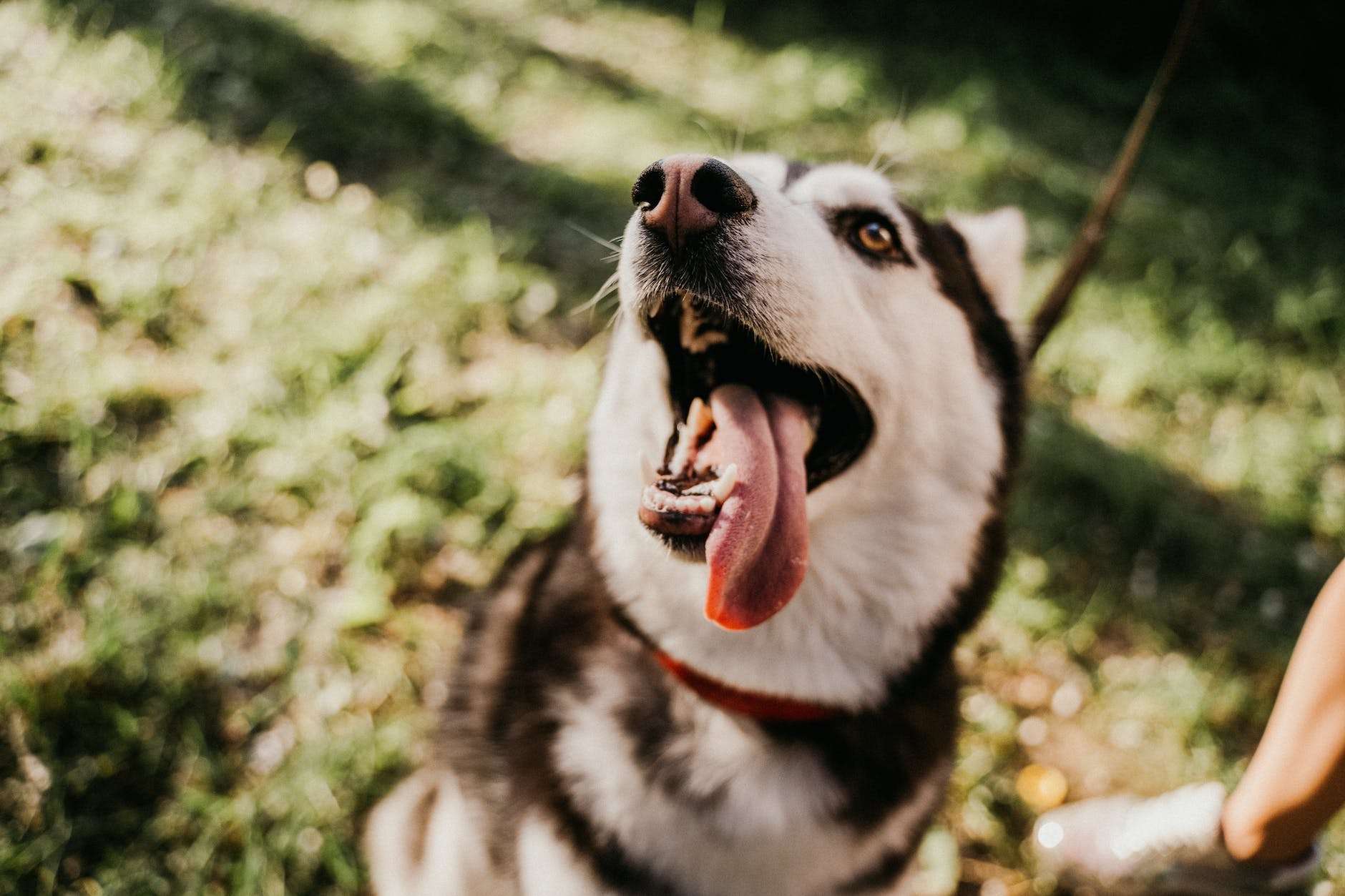
DCM in Dogs Eating Grain Free Dog Food
Dilated cardiomyopathy is when the heart muscle becomes enlarged. DCM is primarily a genetic condition, passed on from parents to puppies.
Dog breeds genetically prone to canine dilated cardiomyopathy include Great Danes, Doberman Pinschers, Boxers, and Cocker Spaniels.
Secondary DCM can be caused by unbalanced nutrition, and as above, it is well documented.
Several board-certified veterinary cardiologists have reported an alarming increase in dogs with no known genetic predisposition to DCM showing up with the disease.
Many of these dogs diagnosed with dilated cardiomyopathy dcm presented with very few symptoms!
Dilated cardiomyopathy is often a silent killer and will take the lives of dogs who had been playing, eating and enjoying life normally just minutes before.
Adding grains or taurine does not fix this problem; as they say, you cannot supplement your way out of a bad diet!
It is believed that the consequences of feeding poorly balanced diets are grossly under-represented, and that many more dogs would have been diagnosed with heart disease had they lived long enough or had a post-mortem autopsy completed.
90% of the dogs reported with DCM, following scientific observation and diagnosis by a board certified veterinary cardiologist, were eating grain-free dog food, indicating a strong potential dietary link.
It doesn’t matter what you hear and from whom, there absolutely is a problem here. Heart disease is terrifying, and we believe that dog owners should be cautious and base their opinions here on the most up to date science.
An FDA investigation was launched, and since then the discussion has become hotbed of misinformation.
The FDA actually released a statement citing that grain-free diets may not specifically be the issue. People misinterpreted this statement as a resolution of what they believed to have been financially biased, corporate-driven data and ran with it.
This happened despite the fact that 1000’s of reports submitted by veterinarians and dog owners around the Country indicate that BEG diets (boutique, exotic, grain free) foods are causing health problems and heart failure.
Naysayers often cite that the “original studies were bonk” and that “grain free and BEG diets are safe and healthy” as a result, furthering the divide with statements that are not backed by facts or science.
That doesn’t mean there is no problem, however.
The correlation is now believed to be within dog foods where no on-staff board-certified veterinary nutritionists formulate the diet, and/or where a significant nutrient source includes peas, legumes, potatoes, beans, or pulses.
Both grain-free AND grain-inclusive diets are to blame, in other words!
Commonly implicated brands include:
- Fromm
- Victor
- Orijen/Acana
- Diamond (including Costco and Nutra-Nuggets)
- Earthborn and Unrefined
- 4 Health
- Taste of the Wild
- Solid Gold
- Rachel Ray
- Nutrisource
- Nutro
- and many others
FACT: None of those brands have a qualified individual formulating, testing, and researching their diets.
Fromm, for example, has a chemical engineer creating recipes. Victor uses a guy with an online certification in dairy cattle nutrition. Diamond uses proprietary software to spit out a formula, and has the results checked off by a team of consultants.
That is where the problem ultimately lies.
Nutritional DCM is the direct result of ‘health’ food marketing and pet food shaming, which was designed to turn people away from the big-5 science-backed brands and promote the sales of poorly balanced, untested, and grossly under-researched boutique diets.
Think about this for a moment. We’ve all be scammed by the dog food industry.
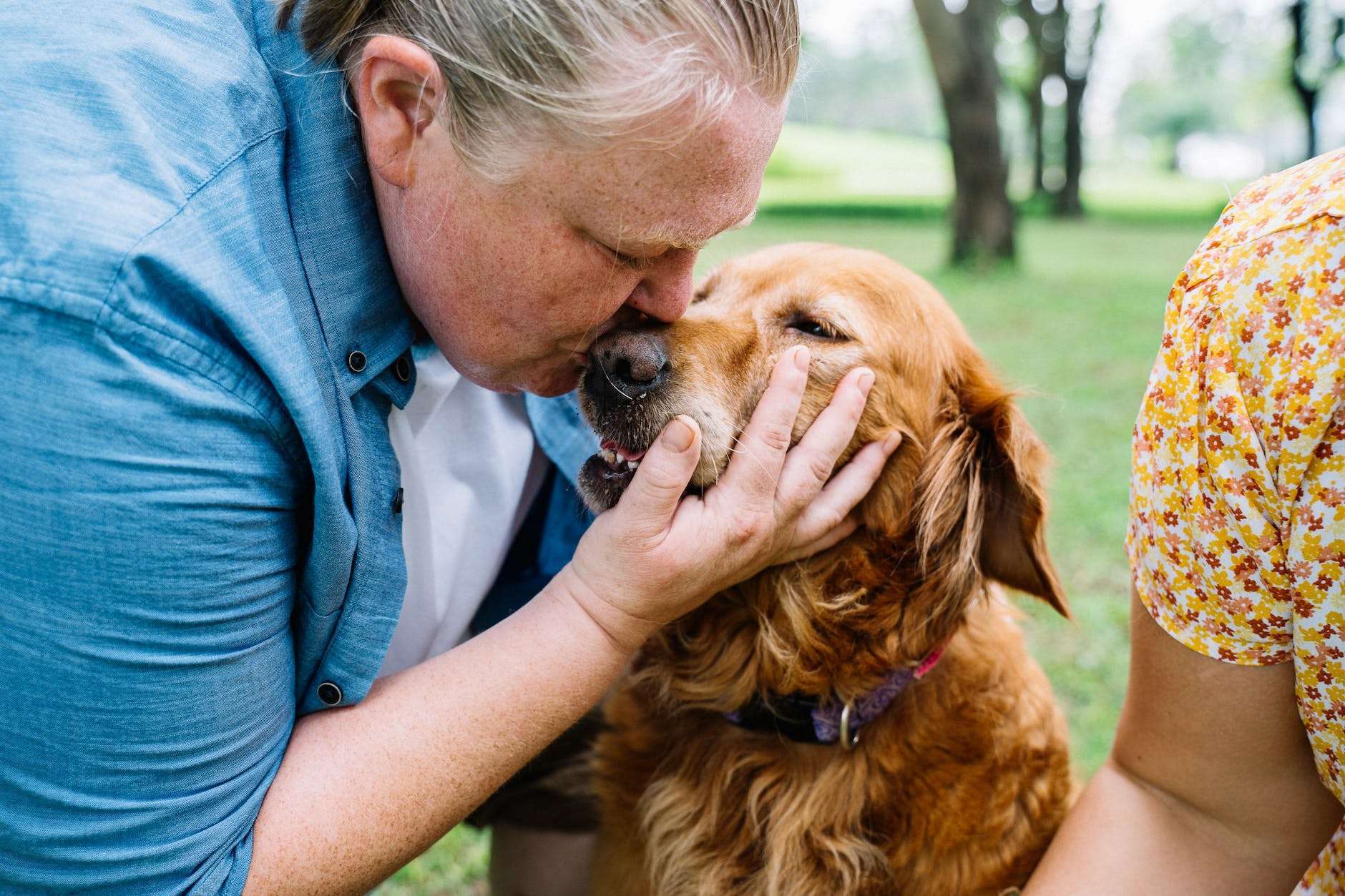
What food do dog nutritionists recommend?
Keep in mind that there is a difference between a ‘nutritionist’ and a ‘board certified veterinary nutritionist’.
The former are generally people who obtained certifications from online nutrition courses and smaller pet food manufacturers.
The later are veterinarians who obtained several years of additional study and then a board certification in small animal nutrition. Personally, I trust science and people who are highly educated.
Veterinary nutritionists recommend a grain-inclusive diet from a company that has a full-time veterinary nutritionist on staff to formulate, test, and research the diets, participate in peer-reviewed research, and prove their formulas in feeding trials.
As of this writing, only five manufacturers meet this standard.
- Purina
- Royal Canin
- Hill’s Science Diet
- Eukanuba
- Iam’s
- Purina Pro Plan Sensitive Skin and Stomach Large Breed (Salmon based, chicken free)
- Purina Pro Plan Large Breed Shredded Chicken & Rice (Large Pieces & Chicken Shreds!)
- Purina Pro Plan Large Breed Weight Management (Get the weight off)
- Purina Pro Plan Large Breed Bright Mind Age 7+ (for Senior Great Danes)
- Purina Pro Plan Giant Breed (Hard to find, might be discontinued)
- Royal Canin Giant Breed (Amazing for dogs with chronic loose stools, TOP TIER)
- Eukanuba Large Breed (Great for active and sport dogs)
- Purina One Smart Blend Large Breed (Fantastic budget-friendly option)
- Hill’s Science Diet Large Breed Beef & Rice
- Purina Pro Plan 30/20 Sport Beef & Bison
Here is a great scientific source of information on diets and health issues related to diet, including canine dilated cardiomyopathy.
https://avmajournals.avma.org/view/journals/javma/253/11/javma.253.11.1390.xml

What is the best food to prevent DCM in Dogs?
We believe that the best food to prevent nutritional DCM based congestive heart failure is a grain-inclusive diet from an established, science-backed company. These foods have been proven to reduce and at times eliminate heart disease in dogs that had been diagnosed with nutritional DCM!
Here is our list of the best foods for giant breeds, including Great Danes.
- Purina Pro Plan Large Breed Puppy – any flavor!
- Purina Pro Plan Sensitive Skin & Stomach Large Breed puppy – TOP PICK, salmon-based
- Eukanuba Large Breed Puppy (Great for active and sporting dogs)
- Purina One Large Breed Puppy (Excellent budget option)
- Hill’s Science Diet Puppy Large Breed
- Royal Canin Giant Puppy Dry Dog food (to age 12 months) – TOP PICK, PREMIUM OPTION
- Royal Canin Giant Junior Dry Dog food (8-24 months)
- Purina Large Breed Puppy Chow
Check out THE GIANT DOG FOOD PROJECT to compare brands and values.
- Purina Pro Plan Sensitive Skin and Stomach Large Breed (Salmon based, chicken free)
- Purina Pro Plan Large Breed Shredded Chicken & Rice (Large Pieces & Chicken Shreds!)
- Purina Pro Plan Large Breed Weight Management (Get the weight off)
- Purina Pro Plan Large Breed Bright Mind Age 7+ (for Senior Great Danes)
- Purina Pro Plan Giant Breed (Hard to find, might be discontinued)
- Royal Canin Giant Breed (Amazing for dogs with chronic loose stools, TOP TIER)
- Eukanuba Large Breed (Great for active and sport dogs)
- Purina One Smart Blend Large Breed (Fantastic budget-friendly option)
- Hill’s Science Diet Large Breed Beef & Rice
- Purina Pro Plan 30/20 Sport Beef & Bison
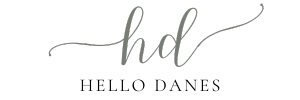
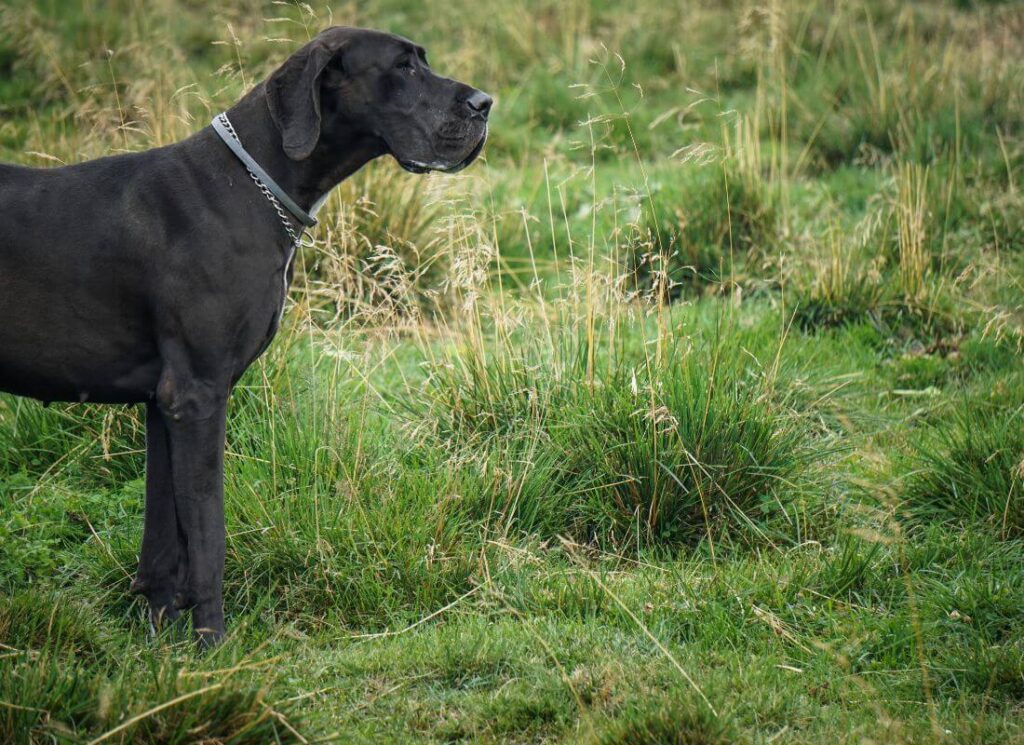



2 Responses
Thank you that’s quite good information. By the way I am having trouble commenting. I get error messages.
Thank you for letting us know about the errors, we will definitely look into them! 🙂